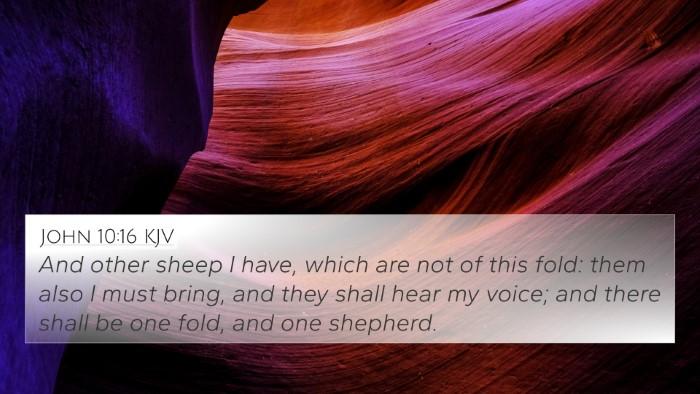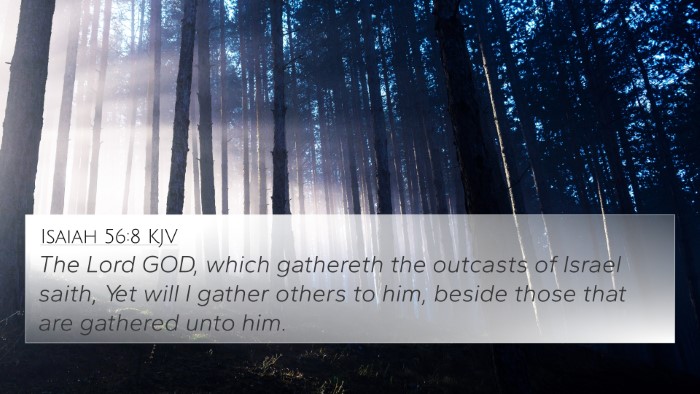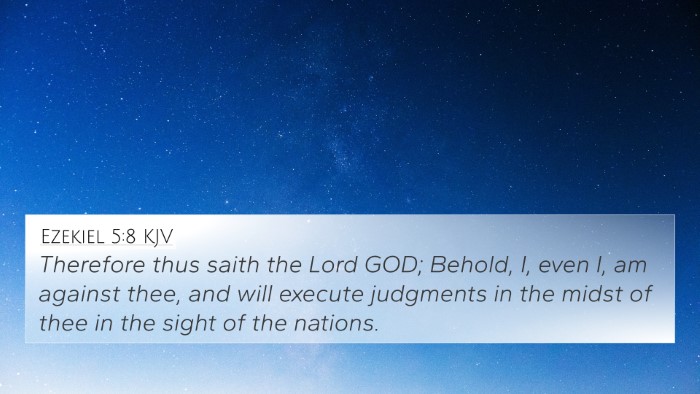Ezekiel 34:11 - Meaning and Interpretation
Ezekiel 34:11 states, "For thus says the Lord God: Behold, I, I myself will search for my sheep and will seek them out." This verse serves as a profound declaration of God's intimate and proactive engagement with His people, resembling the role of a shepherd who actively tends to his flock.
Overview of Ezekiel 34:11
This passage illustrates God's commitment to seek out Israel, portraying Him as a shepherd who cares for and redeems His flock. This symbolism resonates throughout Scripture, emphasizing God's love, authority, and the responsibility of leaders.
Insights from Commentaries
- Matthew Henry: Notes the personal nature of God's care—He does not delegate this responsibility but undertakes it Himself. God's promise to search for His sheep is a comforting assurance that He is attentive to their needs.
- Albert Barnes: Highlights the significance of God's initiative in seeking His people, indicating that humanity often strays away, necessitating divine intervention for restoration and guidance.
- Adam Clarke: Observes that this verse serves as an assurance to the Israelites during their exile, demonstrating that God has not forgotten them and will eventually restore them to their rightful place.
Thematic Connections in Scripture
The theme of God as a shepherd recurs throughout the Bible, establishing a framework for understanding His relationship with humanity. The following are notable cross-references that illustrate this theme:
- Psalms 23:1: "The Lord is my shepherd; I shall not want." This verse enhances the idea of God's providential care.
- John 10:11: "I am the good shepherd. The good shepherd lays down his life for the sheep." Jesus embodies this shepherd imagery as the ultimate caretaker.
- Isaiah 40:11: "He will tend his flock like a shepherd; he will gather the lambs in his arms." This further emphasizes God's nurturing character.
- Matthew 18:12-14: The parable of the lost sheep illustrates the lengths to which God will go to seek out those who wander away.
- Hebrews 13:20: Refers to God as the "great shepherd of the sheep," reinforcing His protective role over His people.
- 1 Peter 2:25: Describes Christ as the Shepherd and Overseer of our souls, linking back to the shepherd theme introduced in Ezekiel.
- Jeremiah 23:3-4: God promises to gather His people and appoint shepherds over them, demonstrating His providence and governance.
Understanding the Role of Shepherd in Biblical Context
The shepherd is a significant metaphor in the Bible, representing guidance, provision, and protection. This theme not only underscores God's relationship with Israel but also illustrates His rejection of false leadership, as noted in early passages of Ezekiel.
Comparative Bible Verse Analysis
When examining Ezekiel 34:11 alongside other scriptures, we can identify profound connections. For example:
- Connections between Old and New Testament: The shepherd theme links Old Testament prophecies with New Testament fulfillments in Christ.
- Similarities between the roles of David and Jesus: Both figures are described as shepherds, highlighting the continuity in God’s leadership through history.
- Covenantal affirmations: God's promise to seek His people threads through numerous covenants, illustrating divine faithfulness.
Tools for Further Study and Cross-Referencing
For those interested in delving deeper into cross-referencing Biblical texts, several tools can enrich understanding:
- Bible Concordance: A key resource for locating specific verses and understanding their interrelations.
- Bible Cross-Reference Guide: Essential for identifying themes and concepts that connect different parts of Scripture.
- Cross-Reference Bible Study: Encourages a thematic exploration of Scripture, revealing the interconnectedness of Biblical teachings.
Conclusion
Ezekiel 34:11 encapsulates the essence of God’s paternal role over His people, showcasing His initiative and love. Cross-referencing this verse with others enriches the understanding of Biblical themes and provides a cohesive narrative of God's unwavering commitment. By utilizing various Bible study tools and engaging with the broader scriptural context, believers can cultivate a deeper appreciation of their faith and the relationships within the Biblical narrative.





















